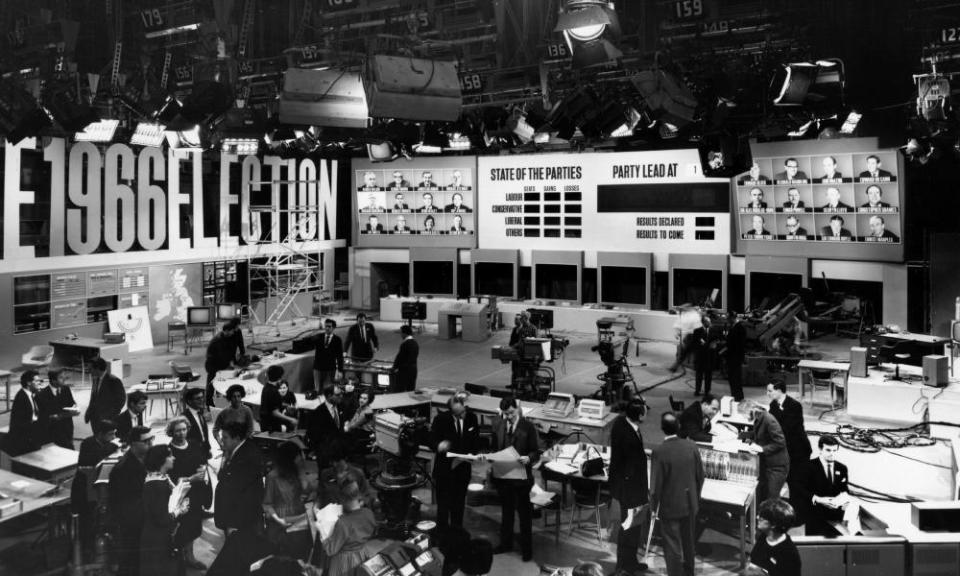Labour’s hope doesn’t usually play well in an age of anxiety

It seems crazy to argue that the election will be determined by the economy when events have focused the electorate’s attention on national security and the judgment of the main political leaders.
Last year’s Brexit vote illustrated many things, among them the propensity of voters to disregard short-term effects on their personal finances in favour of high ideals for a better world, whatever they felt that to be.
Yet the economy looms large in the background of this election and could still play a major role in determining the outcome. And fortunately for Theresa May, the trends of the last few months play into her party’s hands. For Labour, jitters over Britain’s economic outlook only makes the mountain harder to climb.
In the postwar era, Labour has tended to gain power in times of hope and confidence, especially the votes in 1966 and 1997.
It might be pointed out that Harold Wilson’s two victories in 1974 were narrow and came against a backdrop of steeply rising inflation, strikes and bank collapses, which ostensibly disproves the trend. That would be true if it weren’t for the broader factors that meant the 1970s were Britain’s happiest decade, characterised by low levels of inequality and technological advancements that only seemed to enhance living standards.
Fast forward to 2017 and voters appear to be in a more downbeat mood. The latest surveys of household attitudes show that their finances are in a state not seen since the summer of 2014.
Three years ago, oil prices were still high and the jobs boom of 2015 and 2016 had yet to arrive. The then chancellor, George Osborne, had already relaxed his tough post-crash austerity measures, but a slowdown in the pace of cuts had yet to take effect. Workers were gloomy.
Figures covering the month of May show a return to this state of mind. On balance, more people believe that sluggish wage rises and soaring inflation mean their own personal finances will be worse in a year than those who think they will be better.
There will be other factors playing on people’s minds. The prospect of higher interest rates (which won’t happen, despite the Bank of England governor Mark Carney threatening them) will suggest a further squeeze on incomes, as will five more years of austerity under a Tory government. Then there are the long-term threats to many people’s jobs, such as the much-discussed rise of the robots.
Looking back over the last seven years, it is easy to see that the feelgood days that came after the summer of 2014 were generated by a sugar rush of low oil prices, low-cost imports and plentiful cheap labour.
The gloomy outlook from the high street contrasts with the view from corporate Britain and the City. Business leaders are full of trepidation about the outcome of Brexit talks and the potential impact on friendly relations with trading partners, it’s true. But the main surveys of business opinion show they are optimistic about their prospects in the meantime, by which they mean the next 18 months.
The recent downgrade of UK GDP growth would appear to say the opposite. The Office for National Statistics said growth in the first quarter was only 0.2% and not the 0.3% previously estimated after a fall in net trade.
A deeper look into the figures shows that much of the deterioration in the UK’s net trade position was down to higher import costs, mostly in response to the declining value of sterling – not a fall in exports. Also, business investment rose on an annual basis for the first time in over a year, and the second quarter began with a bit more momentum than previously believed.
But the conclusion remains that consumers are less confident about the future even if their bosses are chipper. The anxiety that gripped voters after the 2008 crash is reasserting itself.
In this atmosphere it will be even more difficult for Jeremy Corbyn to convince floating voters that now is the time to increase the size of the state and do it with a calculated gamble on future tax receipts.
Consumers need to feel in expansive mood and believe that things can only get better to vote Labour. Or at least they need to be convinced that a competent Labour leadership, armed with a coherent set of policies, can make their lives better.
The Institute for Fiscal Studies was not kind to Labour following its assessment of the main political party manifestos. It said many of its numbers failed to add up. There was also criticism of the Tory plan, but Labour came in for the most criticism.
Across the Atlantic in another time, WH Auden summed up a growing mood of popular disquiet in 1948 when he wrote:
“We would rather be ruined than changed
We would rather die in our dread
Than climb the cross of the moment
And let our illusions die.”
His poem, The Age of Anxiety, won the Pulitzer prize and was a telling insight into the anxieties of the postwar world. Back in Britain, Labour went on to lose the 1951 election partly because it failed to overcome a sense of gloom about the nation’s prospects.
Today we face another age of anxiety and it’s difficult to see how Labour overcomes this hurdle.

 Yahoo Finance
Yahoo Finance 